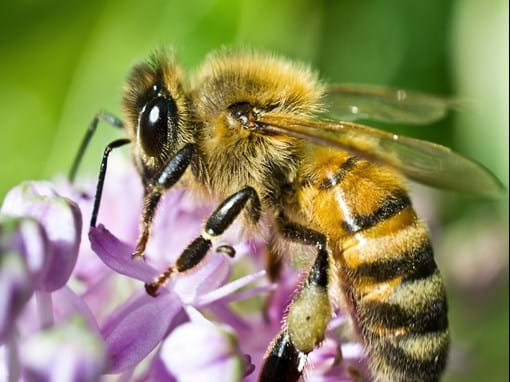
Honeybee venom kills difficult to treat breast cancer cells
A team of scientists found that the active component of honeybee venom induced death in two forms of malignant breast cancer cells that are notoriously difficult to treat.
The magic healing molecule in the honeybees' venom appears to be Melittin, which rapidly kills two forms of malignant breast cancer cells that are notoriously difficult to treat , while leaving healthy cells un-harmed in under an hour.
Previously, honeybee venom has shown potential in treating other medical conditions such as eczema and tumors, and it has been known to have anticancer properties.
Melittin — the zingy molecule responsible for producing the painful sting of a bee induced cancer cell death.
The two most aggressive and hard-to-treat types are known as triple-negative breast cancer (TNBC) and HER2-enriched breast cancer, which tend to mutate to resist existing treatments.
Melittin disarms cancer cells by puncturing holes in their outer membrane. Another stunning effect: within just 20 minutes of exposure to Melittin, the chemical messages cancer cells need to grow and divide are disrupted.
Melittin seems to halt the cell's proliferation by blocking those growth signals from getting through.
The team also tested to see if Melittin could be used with existing chemotherapy drugs, as the pores in the membranes that it creates may allow other treatments to faster penetrate and kill cancer cells.
The authors in the study point out that honeybee venom is inexpensive and easy to obtain, thus making it a fantastic option for cancer treatment in regions and countries with poorly resourced health services and care.
Honeybee venom is available globally and offers cost effective and easily accessible treatment options in remote or less developed regions.
The researchers will continue to perform clinical trials to assess the safety and efficacy of Melittin for treating breast cancer.
 English
English Arabic
Arabic


